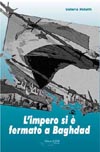February 21, 2007
Amman--In a one-bedroom basement apartment Um Mahmoud sits clothed in a
black abaya, surrounded by three of her five children. Though married
for many years, five months ago she was thrust into the role of a single
mother when her husband was refused re-entry to Jordan.
Um Mahmoud is now like many Iraqi women in Amman, single and trying to
raise their children with little hope for work. Unofficial figures put
about fifty percent of Jordanís 1 million Iraqis under the poverty line.
No one knows exactly how many single mothers are here trying to get by,
but one social worker tells me most of the families she sees are headed
by the mother. "For them it is really hard," she says, "I donít know how
they do it."
"When I came to Jordan, my health was good," says Um Mahmoud, "but with
the pressure, itís too much." Now, she says, her health is faltering.
She is need of an operation for a gynecological condition, but is in an
elevated risk category due to high blood pressure. "Besides, where would
I get the money and who would take care of the children if anything were
to happen to me?" she wonders.
Um Mahmoud takes in some sewing work, but with faltering eyesight, she
is only able to do small amounts.
Her two boys should be in school, but are now working to support the
familyósix in all. Their work in a factory brings in about $200 a month,
barely enough to cover the rent and electricity. Um Mahmoud says she
worries constantly for her sons. "Their health is now suffering because
of the chemicals at the factory, and now the eldest one is picking up
bad habits. He needs his father."
Um Mahmoud struggles to put food on the table and says eggs are the
familyís primary food source since they are very cheap. "The children
accuse me of trying to turn them into chickens," she says with a laugh.
Becoming serious once again, she adds, "but really, I donít always have
money to put food on the table. My children now are blaming me for the
situation, especially as the two younger girls are taunted at school for
being Shiía. Now, they donít want to even go. Itís too much. I donít
know what to do," she says, stopping now to wipe tears from her eyes.
The UN High Commission for Refugees (UNHCR) partners with certain NGOs
to provide assistance to Iraqis. CARITAS, for example, helps families
with education expenses , while CARE International provides such
necessities as blankets and heaters. But with the overwhelming numbers
of Iraqi refugees, the organisations say they are doing their best in a
bad situation. And while some small amounts are available for health
care, most just pray their children donít become sick.
Many Iraqis criticise the aid organisations, saying they arenít doing
enough and accusing them of spending money on new staff and nice offices
instead of helping people.
Um Mahmoud says when an aid representative came to her apartment and saw
she had furniture she was told to stop complaining. "But, I do condemn
the situation," she retorts. She charges that many of the organisations
hire only non-Iraqis who are often dismissive of Iraqi concerns.
One mother of two teenage girls offered this example. "A friend called
me and said CARE was giving away blankets, so I went to their offices
and they told me 'no,í they were finished. But another friend who went
in just 30 minutes after me was given blankets. Why do it like this?
Either they have blankets or they donít. They should not be playing games."
Compounding the situation for many women is grief for a husband whoís
gone missing in Iraq--kidnapped, killed or arrested amid the countryís
unrelenting violence.
Noor is from Al-Gadeer in Baghdad where she and her husband owned a home
and lived with their teenage son. Yet in three short months Noor lost
nearly everything.
When they realised Iraq was to be attacked, Noor and her husband
obtained passports for the three of them and were prepared to flee.
However, just two weeks before the US-led invasion, Noor says, her
husband was inexplicably taken by the Iraqi military. "From the moment
my husband was taken until now, I havenít heard anything about him," she
says softly.
"I was alone in the house with my son when the war started, so I escaped
to the north with some family. We were gone only 47 days, but when we
came back there were people occupying our home. I was negotiating
through others to try to get it back, but they threatened to kidnap or
kill my son."
Noor declines naming the group that threatened her; she is still afraid
here in Jordan. "Itís too risky to say everything; Iím only a single
mother with my son." She pauses, then says, "I left everything behind
just to protect myself and my son. Now, we have nothing."
Though she struggles to make ends meet, Noor is more fortunate than many
because she has a job in Amman, but even as an experienced accountant
she makes only $145 a month; she is paid less than what a Jordanian
would make.
Visibly trembling while talking, tears welling in her eyes, Noor is
telling her story, she says, because, "I am hopeful that there will be
some help for Iraqi refugees, perhaps even a visa to another country.
The world must know about us."
With some notable exceptions, such as Sweden , the world has mostly
stood by watching as the Iraqi refugee crisis has exploded. The US has
admitted only 466 Iraqis since the Anglo-American invasion in 2003. The
UK accepted just five Iraqis in 2006. In the past week, under immense
pressure from Congress and the international community, the Bush
administration announced plans to accept 7,000 Iraqis this year.
Ten thousand Iraqis are fleeing their homes each month due to the
current lack of security. Exacerbating the situation is a profound
distrust by the Iraqi public of both Iraqi and American security forces.
Huda is a computer teacher from a mixed neighborhood in Baghdad who fled
to Amman ten months ago with her two children. Her Sunni husband worked
at the Shiía controlled Ministry of Health as a computer analyst where
Huda says he was threatened numerous times by the Mehdi Army. In 2005
the family finally decided to flee Baghdad and seek help. Huda says they
registered with UN High Commission for Refugees (UNHCR) when they
arrived in Amman, but the agency did nothing to help--a common complaint
here.
Citing budget constraints UNHCR has registered just 22,000 Iraqis and
accorded official recognitionómeaning they will seek resettlement on
behalf of the refugeeóto just 800 thus far.
Frustrated by the situation and their money quickly dwindling, Hudaís
family decided to return to Baghdad where she and her husband still had
jobs. At first everything seemed to be okay, says Huda. "But, four
months later the Mehdi Army kidnapped my husband," she weeps. "I have
heard nothing since."
Not long afterwards, Huda overheard two of the Mehdi guards who provide
security at the school talking. "They were saying, 'itís easy to attack
her house because she is alone.í I was very scared. Then one day while I
was driving I was shot at. At that point I decided to leave Iraq
forever!" Fortunately, Huda escaped uninjured. When asked if she
reported any of the incidents, she laughs sardonically and says, no way.
Who should she tell? The Americans will direct her to the Iraqi police,
she says, but the police are part of the problem.
"I do believe our country is completely destroyed and Iraq wonít be a
good situation anytime soon. They [the Americans] took our land and
occupied our country, so they have to find another country for us." Huda
alternates between despair, anger and a hope she holds onto that her
family may somehow obtain a visa to either Australia or Switzerland. Why
there? "Because they donít have aggressive armies," she quickly responds.
Meanwhile, Huda refuses to go back to UNHCR. "All they do is give you a
white card to say youíre here. It does nothing." She does some
housecleaning to support her household of four, while attempting to gain
her visa. She is proud that her12 year old son and 16 year old daughter
are attending school. But, she worries constantly. "My father also lives
with us and almost all our savings is gone. I really donít know what to
do. I want a job. Iím a teacher and worked for 16 years, but here I
cannot work." For now, Huda is able to put food on the table, but as for
the future? "I really donít know what we will do," she repeats, looking
into the distance.
"Today the landlord came wanting the rent and I had to beg him to come
back later until I can find the money. I want my husband back. I want to
go back to Iraq. We just want a normal and stable life again," concludes
Um Mahmoud.
www.karenbutton.blogspot.com
|
















